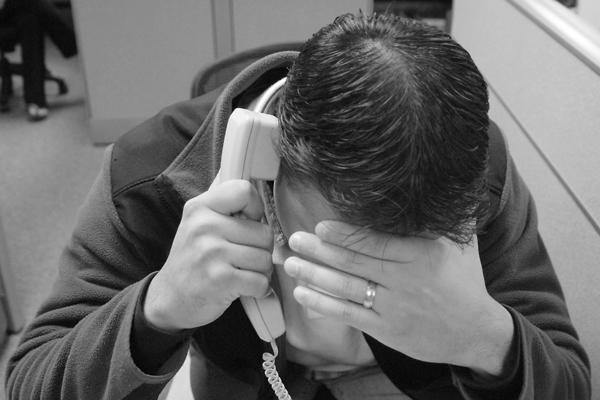Stress is a fact of life, but it need not be a way of life. You can't control many things in life, but there are very few you can't learn to manage, including the negative aspects of stress.
The positive aspect of stress is that it can help you concentrate, focus and reach peak performance. Many people do their best work when under moderate pressure. Then, when the challenge has been met, they relax and enjoy their achievement. This relaxation response enables them to build the physical and emotional reserves to meet the next challenge.
Related: Search for security clearance jobs.
Stress becomes negative when you stay uptight and don't -- or can't -- relax after meeting the challenge. Too much stress can leave you tired, irritable, angry, tense, anxious, frustrated and depressed. Chronic, ongoing stress can lead to emotional problems and physical illness.
The first step to managing stress is to become aware of the things that cause your stress. Once you realize what causes your stress, try to focus on how your body feels under stress. "Listen" to your body for signs such as irritability, headaches, a knot in your stomach, tensed muscles, clenched teeth, cold or clammy hands, or other symptoms that tell you that you are under stress. There are many potential causes of stress both at home and in the workplace, and many different bodily reactions to stress. Recognizing what causes your stress and how your particular body reacts to stress is the first step to finding solutions to the problem.
Related: Does your resume pass the 6-second test? Get a FREE assessment.
The many potential solutions include:
- Recognizing when your body is telling you it's time to take a break.
- Learning any of the wide variety of relaxation techniques, such as deep breathing, stretching, meditation, yoga, clearing your mind, progressive muscular relaxation, visualization, etc.
- Improving work habits, such as learning how to manage your time better.
- Avoiding the circumstances that create stress.
- Adjusting your priorities, deciding what is really most important in your life.
- Adopting more realistic career goals.
- Resolving not to let yourself be provoked or upset by others' behavior.
- Talking out problems with a friend or supervisor.
- Going out of your way to improve relationships with family, friends, co-workers and your supervisor.
- Developing a healthier or more positive lifestyle with good nutrition and appropriate exercise.
- Seeking professional help.
A mental health counselor can help you find and implement the right solution for your particular problem. If the cause of your stress is not easily recognized or manageable, you may feel overwhelmed, depressed or helpless, as if there is "no way out." If this describes your situation, you may need medical assistance to help you cope with these feelings.
Your security office is concerned about stress in the workplace, because too much stress or chronic stress can lead to poor judgment. No employee ever exploded in violence, died by suicide, stole government property, became a spy or engaged in any other destructive or self-destructive behavior, because they were happy and relaxed. They were stressed out and desperate. A safe and secure office environment is one in which employees know how to recognize and manage the negative aspects of stress.
Related: Discover your perfect career path and get customized job recommendations based on your military experience and vocational interests with Military.com's Military Skills Translator + Personality Assessment.
Additional information is available from your doctor, local counseling service or employee assistance program. For a list of internet sites that provide guidance on stress management, go to the Yahoo search engine, click on health, then mental health, then stress management.
Many books on various aspects of stress management are available at your local library or bookstore. Here is a more or less random selection:
- "Don't Sweat the Small Stuff ... and It's All Small Stuff: Simple Ways to Keep the Little Things from Taking Over Your Life," by Richard Carlson. Hyperion, 1998.
- ":60 Second Stress Management: The Quickest Way to Relax and Ease Anxiety," by Andrew Goliszek. New Horizon Press, 1992.
- "The Art of Self-Renewal: Balancing Pressure and Productivity On and Off the Job," by Barbara MacKoff. Lowell House, 1993.
- "Anger at Work: Learning the Art of Anger Management on the Job," by Hendrie Weisinger. William Morrow & Co., 1996.
- "Career Success/Personal Stress: How to Stay Healthy in a High Stress Environment," by Christine A. Leatz and Mark W. Stolar. McGraw-Hill, 1992.
Related: For the latest veteran jobs postings around the country, visit the Military.com Job Search section.
The Next Step: Find the Right Veteran Job
Whether you want to polish up your resume, find veteran job fairs in your area, or connect with employers looking to hire veterans, Military.com can help. Sign up for a free Military.com membership to have job postings, guides and advice, and more delivered directly to your inbox.











